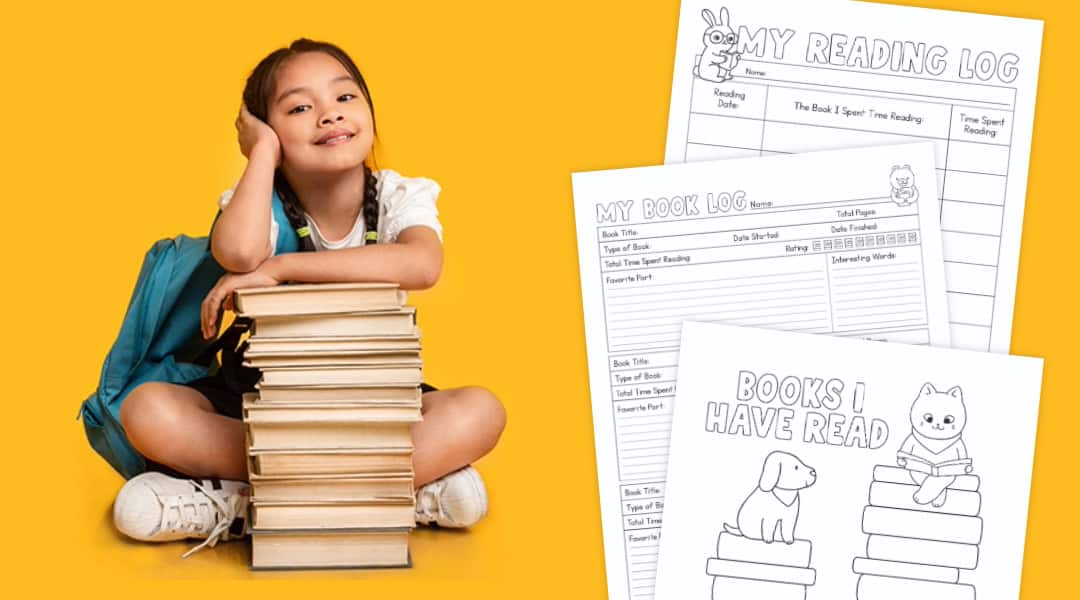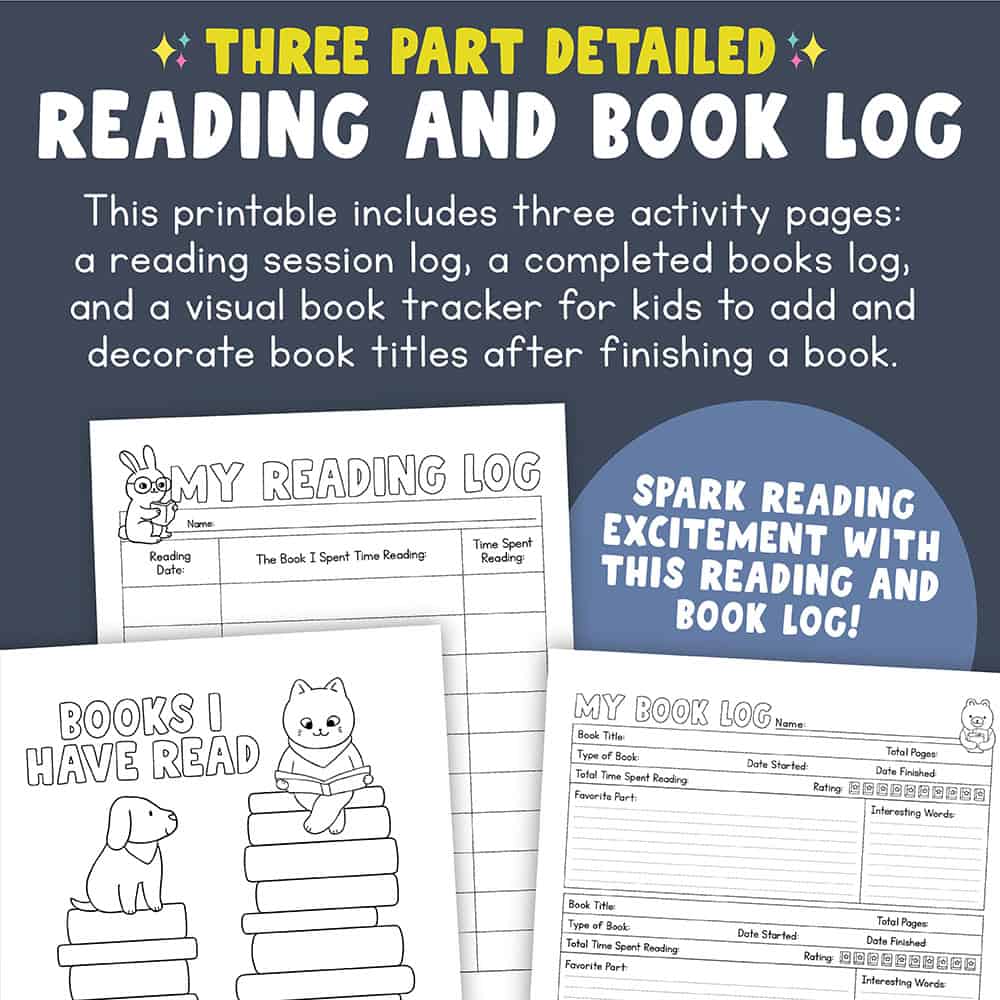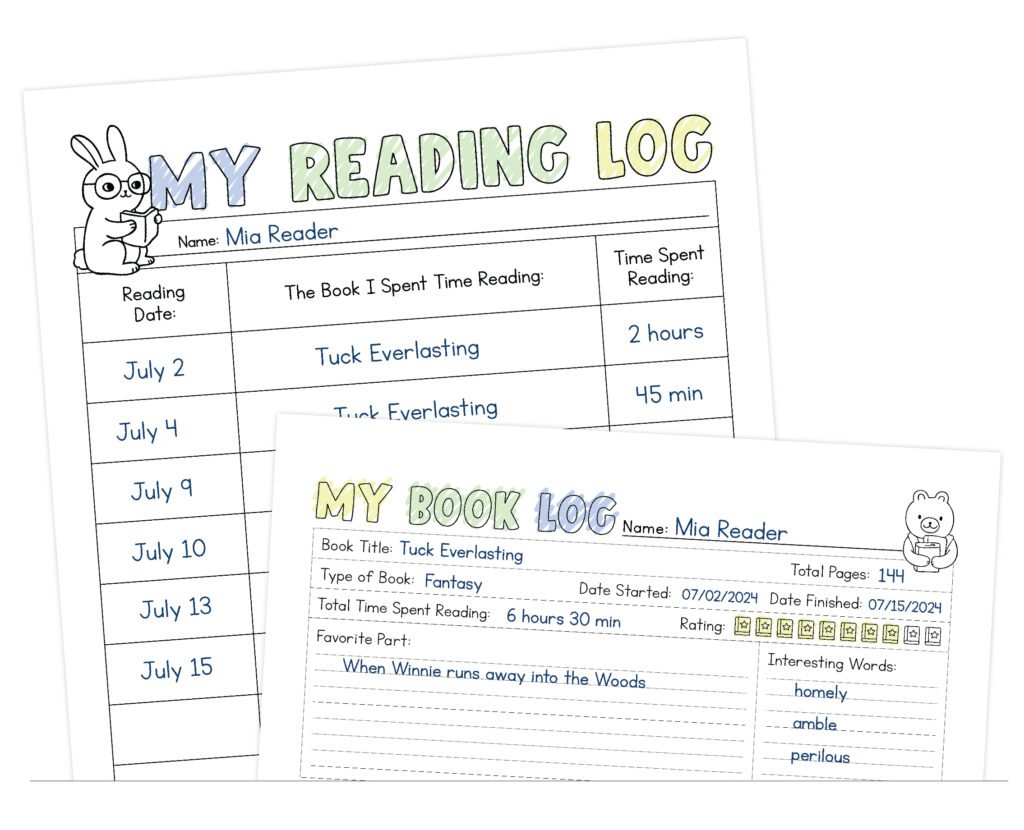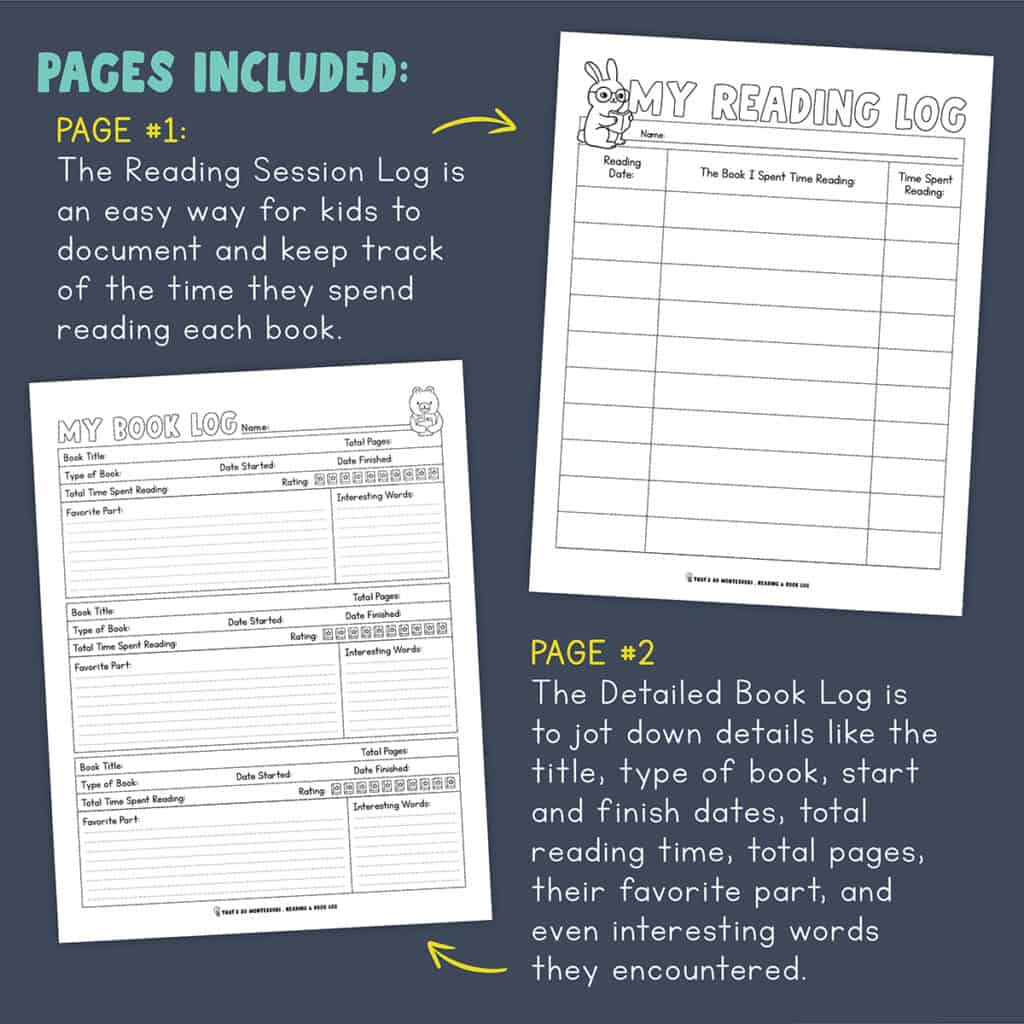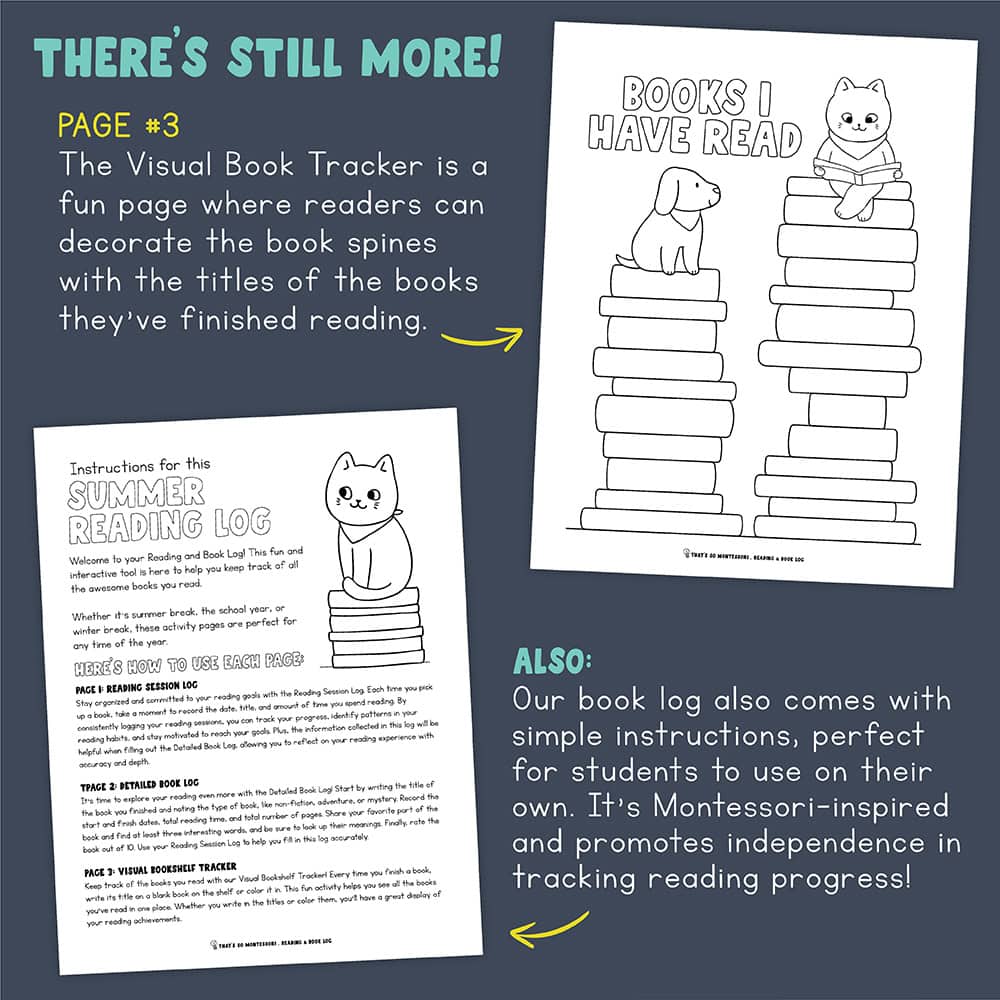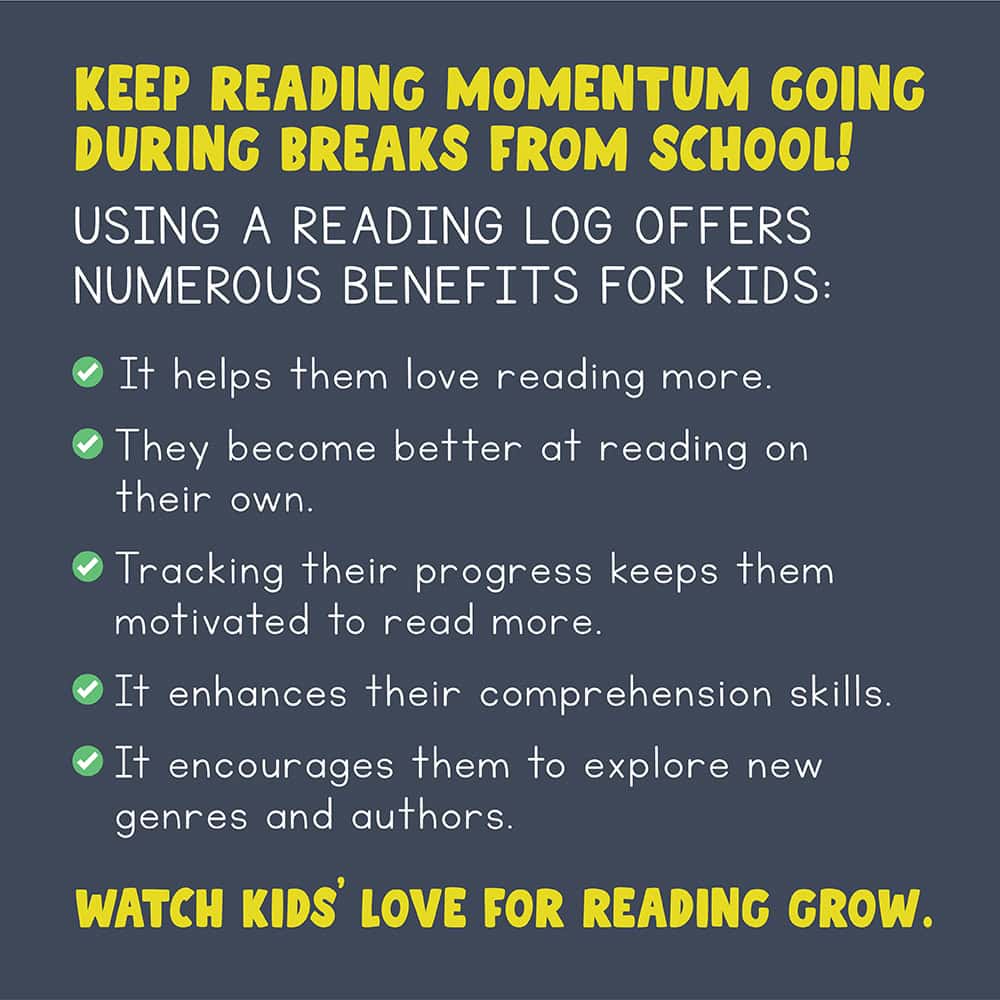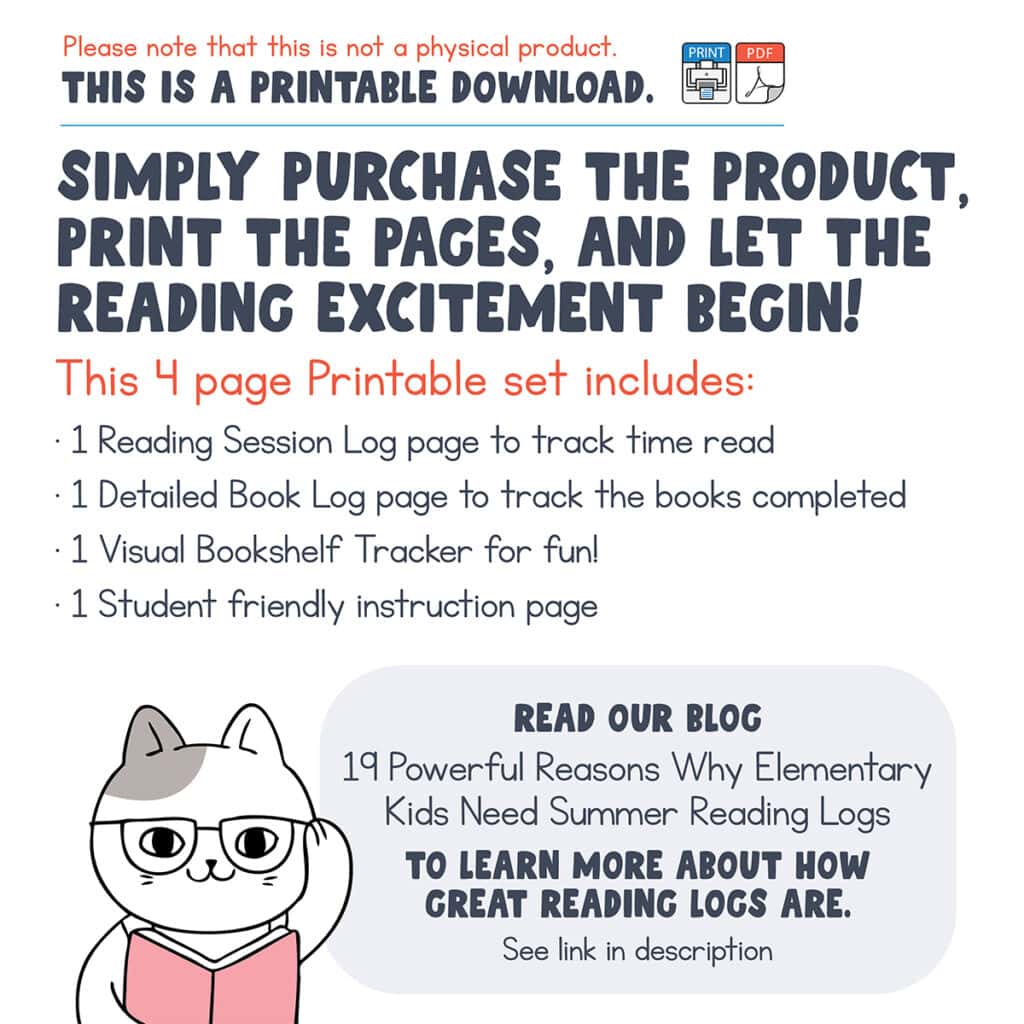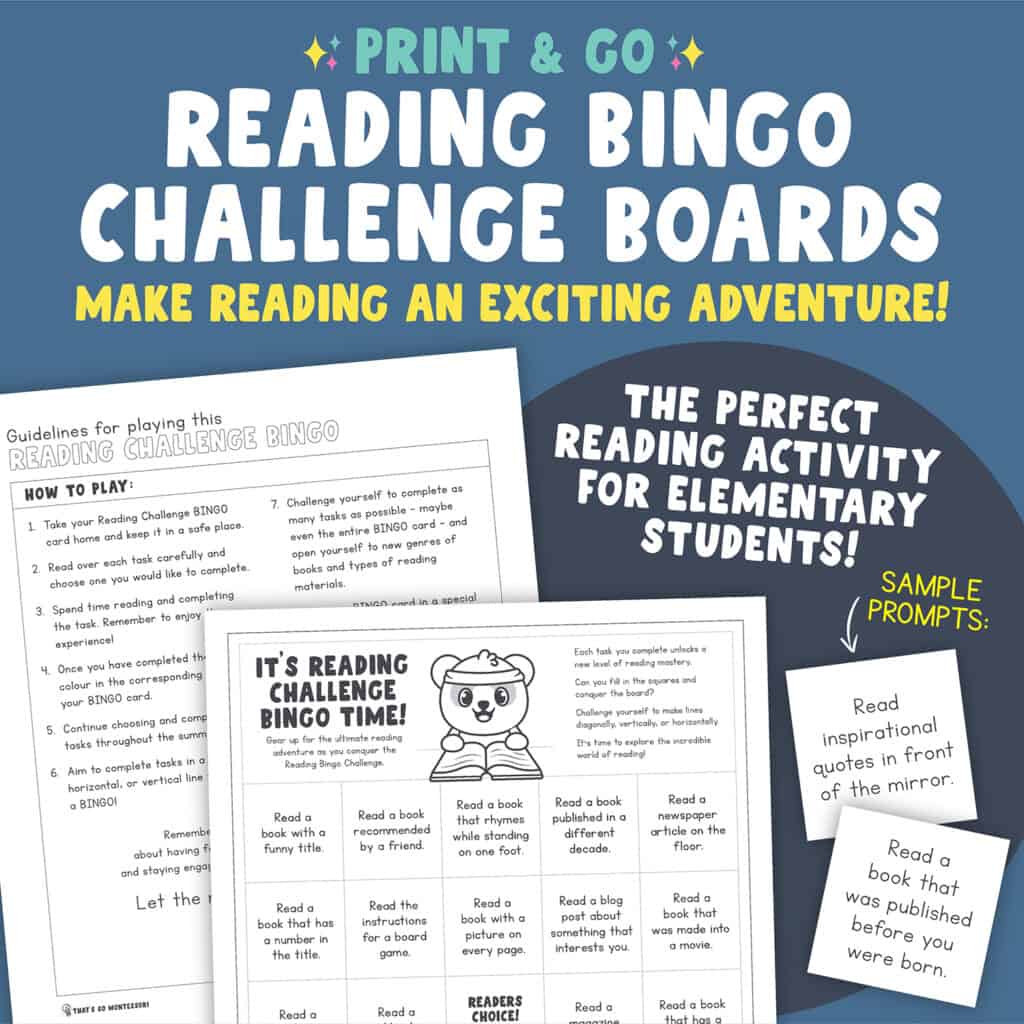19 Powerful Reasons Why Elementary Kids Need Summer Reading Logs
Summer is full of sunshine, freedom, and fun. But without a little structure, it can also lead to summer brain drain. That’s where summer reading logs come in. These simple yet powerful tools help elementary kids stay engaged with books, track their reading progress, and build healthy habits that carry into the school year.
In this post, we’ll share compelling reasons why summer reading logs are more than just checklists. You’ll see how they are a fun, motivating way to encourage curiosity, build confidence, and spark a lifelong love of reading.

Summer Reading Logs Explained
Summer reading logs are simple tools students use to track their reading. These logs often include spaces to record the book title, author, and the dates they read. It’s an easy way for kids to reflect on their progress and stay motivated throughout the summer.

Some reading logs include extra spaces to track the number of pages read or time spent reading. Others offer a fun twist by letting kids color in pictures to mark their progress. These creative touches make the experience more engaging and enjoyable.
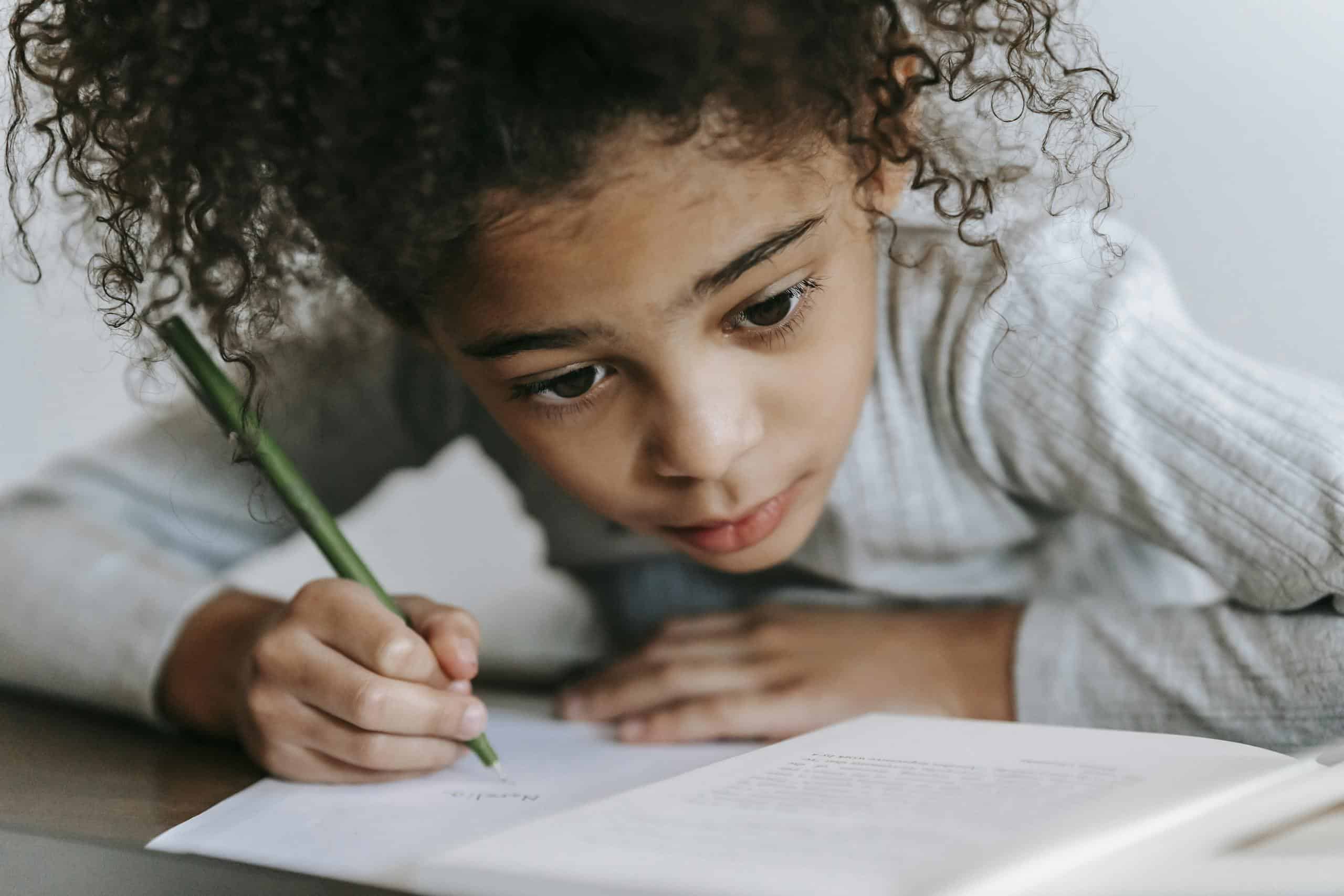
The Purpose of Summer Reading Logs
Summer reading logs encourage elementary students to read consistently throughout the summer. They also provide a sense of accomplishment as children see their reading list grow. These logs serve as a visual representation of their reading journey, allowing students to reflect on their progress and learn to set goals for themselves.
By keeping track of the books they read over the summer, students can challenge themselves to read more, explore different genres, or reach a specific reading target.
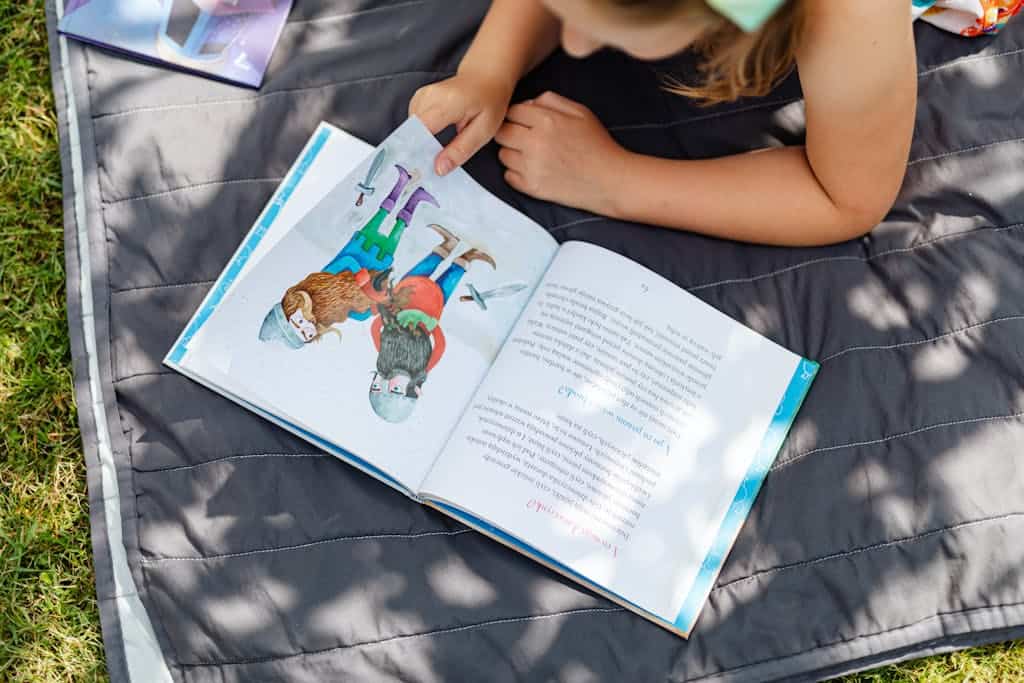
Summer reading logs are a great way for parents and educators to keep track of a child’s reading habits during the summer. They open the door for meaningful conversations about books and stories. Parents can use them to suggest new titles and celebrate their child’s progress.
Educators often use summer reading logs to stay connected with their students during the break. They can also use the logs to offer personalized book recommendations based on each child’s interests and reading level.
19 Reasons Summer Reading Logs Matter for Elementary Kids
Ready to see just how impactful a reading log can be? Below you’ll find meaningful reasons why summer reading logs are a must for elementary students during the break. From sparking motivation to building lasting habits, these benefits show why reading should stay front and center all summer.
1. Track Progress with Summer Reading Logs
Summer reading logs allow elementary students to track their reading progress over the summer break.
By recording the pages and books they read, students can see how many books they’ve completed, the genres they’ve explored, and the diversity of authors they’ve explored. This sense of accomplishment boosts their confidence and motivates them to read more.
Plus, it’s a fantastic way for them to reflect on their reading habits and set new goals for their literary endeavors.
2. Summer Reading Logs Support Goal Setting
Reading logs provide a platform for students to set personal reading goals.
Whether it’s a certain number of pages, books, trying a specific genre, or exploring new authors, setting goals helps students stay focused and engaged in their reading journey. It instills a sense of responsibility in the second plane child and encourages them to challenge themselves to reach their targets.
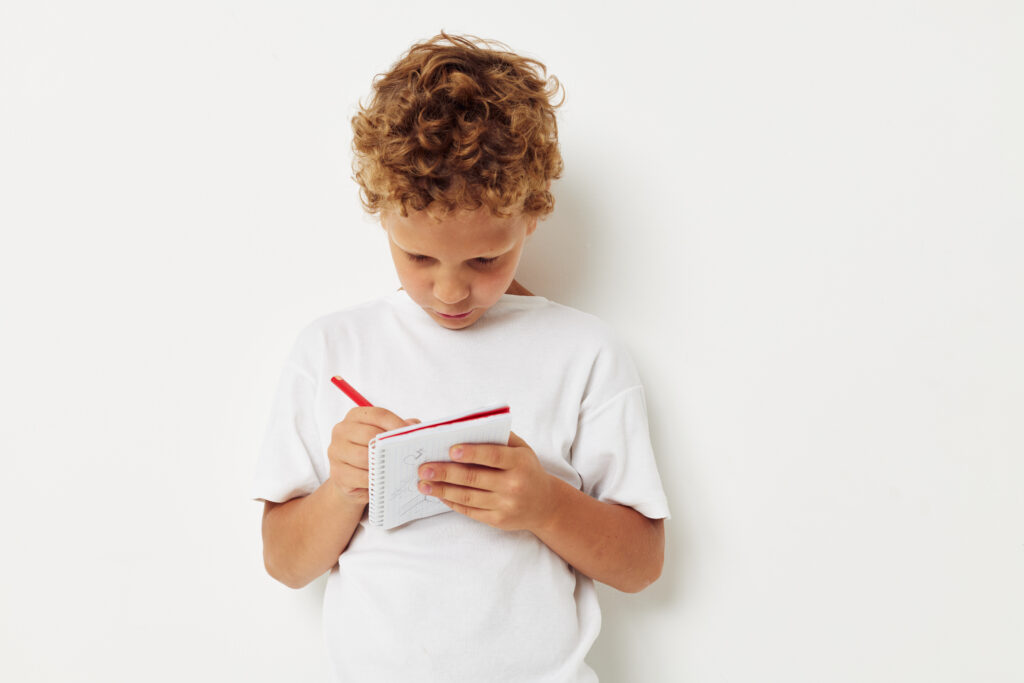
3. Summer Reading Logs Develop Strong Reading Habits
By using reading logs, elementary students can establish a routine of consistent reading. Recording their daily reading activities in a log encourages them to prioritize reading as a regular habit. Forming these habits has long-term benefits, promoting lifelong reading and continuous learning.

4. Expand Student Vocabulary
Enhancing vocabulary is a key benefit of summer reading logs for elementary students. Through consistent reading and engagement, children have the opportunity to encounter new words in various contexts, expanding their linguistic repertoire.
By actively recording unfamiliar words and their meanings in the reading logs, students reinforce their understanding and develop valuable study habits. As they explore different genres and topics during their summer reading adventures, students naturally broaden their vocabulary, equipping them with the language skills needed for academic success and lifelong learning.
Looking for a book to propel your child’s love for vocabulary? Introduce Your Kids to Carl!
Check out our blog about our self-published picture book, an engaging story full of rich language that inspire young minds.
Discover for yourself why Carl the Cantankerous Cat is one of the best picture books to teach vocabulary! Get your copy today!
5. An Opportunity to Reflect on Reading Preferences
Summer reading logs allow students to discover what types of books they enjoy most. By recording the genres, themes, or authors they gravitate towards, students can gain insights into their reading tastes.
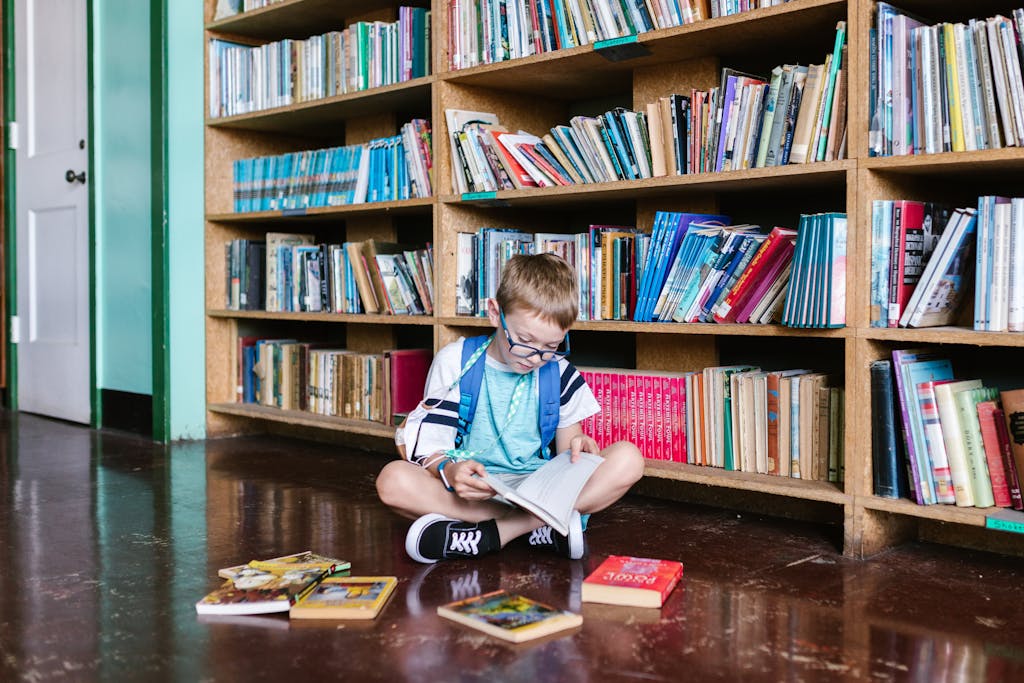
This self-awareness helps them make more informed reading choices in the future and explore new genres they may not have considered before, such as cat facts for kids or picture books with rich vocabulary.
6. Summer Reading Logs Encourage Family Involvement
Reading logs provide an avenue for parents to get involved in their child’s reading journey. Parents can review their child’s summer reading log, discuss the books they’ve read with them, and offer guidance and book recommendations. This involvement strengthens the parent-child bond, fosters a love for reading in the family, and creates opportunities for meaningful conversations.

💡Teacher Tip: Explore the joy of family reading with book club!
Spark unforgettable moments and foster a love for literature with your very own family book club. Discover how to kickstart your own family book club with ease and make reading a cherished family tradition!
Bonus: Wrap up your family book club with creative book report ideas to keep the fun and learning going!
7. Boost Reading Comprehension with Summer Reading Logs
Summer reading logs aren’t just for tracking books, they actually help kids become better readers! By reading regularly and jotting down their thoughts, kids start to understand stories more deeply and pick up on important details.
This steady practice keeps their comprehension skills sharp and sets them up for a confident return to school in the fall.

8. Bridge the Summer Learning Gap
During the summer break, students often experience a decline in their academic skills, commonly known as summer brain drain. However, summer reading logs provide a helpful solution to prevent the summer slide.
By encouraging kids to read regularly and keep track of their progress, these logs help them maintain important reading skills even while school is out.

9. Reading Logs Cultivate a Love for Reading
Cultivating a love for reading is one of the most valuable benefits of summer reading logs. As children document their reading with logs, they track their progress and develop a sense of pride in their accomplishments. Seeing their reading improve motivates kids to keep exploring new stories and genres with excitement.

Moreover, as kids immerse themselves in the world of reading, they develop a deeper appreciation for the power of storytelling. This positive association with reading instills a lifelong love for books and learning, shaping them into enthusiastic and avid readers well beyond the summer months.
10. Improve Time Management
Summer reading logs help elementary kids learn how to manage their time. By setting goals and tracking progress, they start to make reading a regular part of their day, just like brushing their teeth or playing outside.
This simple habit teaches them to balance reading with other activities and builds a sense of responsibility that carries over into school and everyday life.

11. Develop Concentration and Focus
Engaging with summer reading logs fosters the development of concentration and focus in elementary students. Through the habit of documenting their progress, children train their minds to maintain sustained attention on a task, even amidst potential distractions.
This improved concentration boosts their reading comprehension and helps them stay focused during lessons and activities. Ultimately, it supports their academic success and personal growth.

12. Enhance Writing Skills
Summer reading logs indirectly support the development of writing skills. As students engage in reading and reflect on the books they’ve read, they are exposed to different writing styles, story structures, and language conventions.
Exposure to different writing styles, story structures, and language conventions through reading influences their own writing. By learning from authors and incorporating elements into their writing, students become better story writers with every book they read.
💡 Teacher Tip: Spark Creativity with Story Dice for Kids!
Unlock your child’s storytelling potential with our Story Dice for Kids!
Read our blog The Best Story Dice and 11 Interesting Ways To Use Them! See how these innovative dice can ignite the imagination of elementary students and enhance their storytelling skills.
13. Boost Cultural Awareness
Elementary students are given a platform to expand their cultural awareness through literature with summer reading logs. By selecting books that feature characters from diverse backgrounds and settings, children gain valuable insights into different cultures, perspectives, and experiences.
Exploring literature from different authors and genres helps students broaden their worldview. This makes it easier for them to connect with people from diverse backgrounds and thrive in multicultural settings.

14. Increase Knowledge and Understanding
Summer reading logs serve as invaluable tools for expanding elementary students’ knowledge base across various subjects. Summer reading logs are a great way for elementary students to learn more about many subjects. By reading different types of books – like stories, non-fiction, and informational texts – kids discover new facts and ideas. This helps them better understand the world around them.

From learning about parts of speech for kids to exploring money books for kids, each reading experience contributes to their broadened horizons, aiding them both academically and in their everyday lives.
15. Enhance Imagination and Creativity
Reading logs ignite the imagination and foster creativity in elementary students.
As students immerse themselves in stories, they visualize settings, characters, and events, allowing their imaginations to soar. This imaginative engagement extends beyond the pages of the books and inspires creative thinking, problem-solving, as well as storytelling and story writing skills.

16. Promote Emotional Intelligence
Students are immersed in a world of emotions and experiences through reading logs. As they engage with characters, empathize with their journeys, and reflect on the emotions conveyed, students not only deepen their emotional intelligence but also gain valuable insights into diverse perspectives.

This reading experience of tracking what they read and connecting with characters fosters the identification and management of their own emotions, nurturing empathy towards others along the way.
17. Build Critical Thinking Skills
Summer reading logs stimulate critical thinking skills in elementary students. As students reflect on the books they’ve read, they not only analyze the plot, characters, and themes but also compare different reading materials. They make connections between texts, draw conclusions, and evaluate the author’s intent. This critical thinking process enhances their analytical abilities, promotes higher-order thinking, and strengthens their overall cognitive skills.

18. Strengthen Communication Skills
Reflecting on their reading experiences through summer reading logs encourages students to articulate their thoughts and ideas effectively. As they discuss their favorite books, share recommendations, and engage in conversations with peers and adults, they enhance their communication skills, including listening, speaking, and articulating their opinions.
19. Foster a Lifelong Love for Learning
Summer reading logs contribute to the development of a lifelong love for learning. By experiencing the joy, excitement, and personal growth that come with reading, students develop a positive attitude towards learning and a curiosity to explore new ideas and subjects. This enthusiasm for learning extends beyond the summer break, fueling their academic pursuits and personal growth throughout their lives.
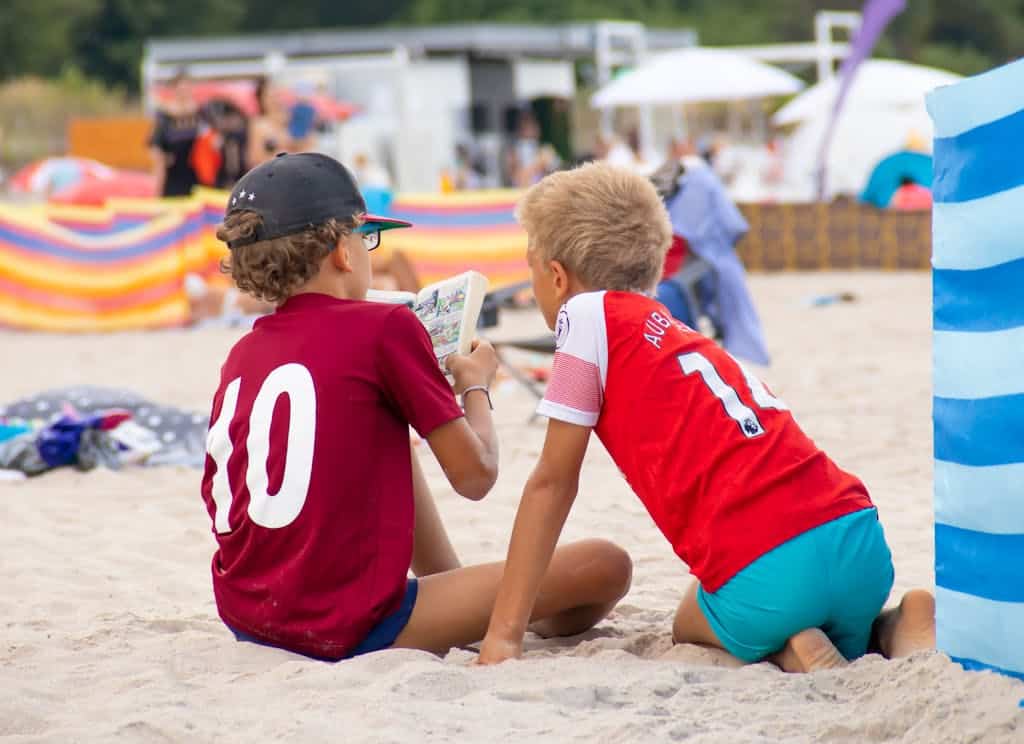
How to Use Summer Reading Logs at Home
Using a summer reading log at home can be a valuable tool for elementary students to track their reading progress and make the most of their summer break.
Your guide to effectively using a reading log at home:
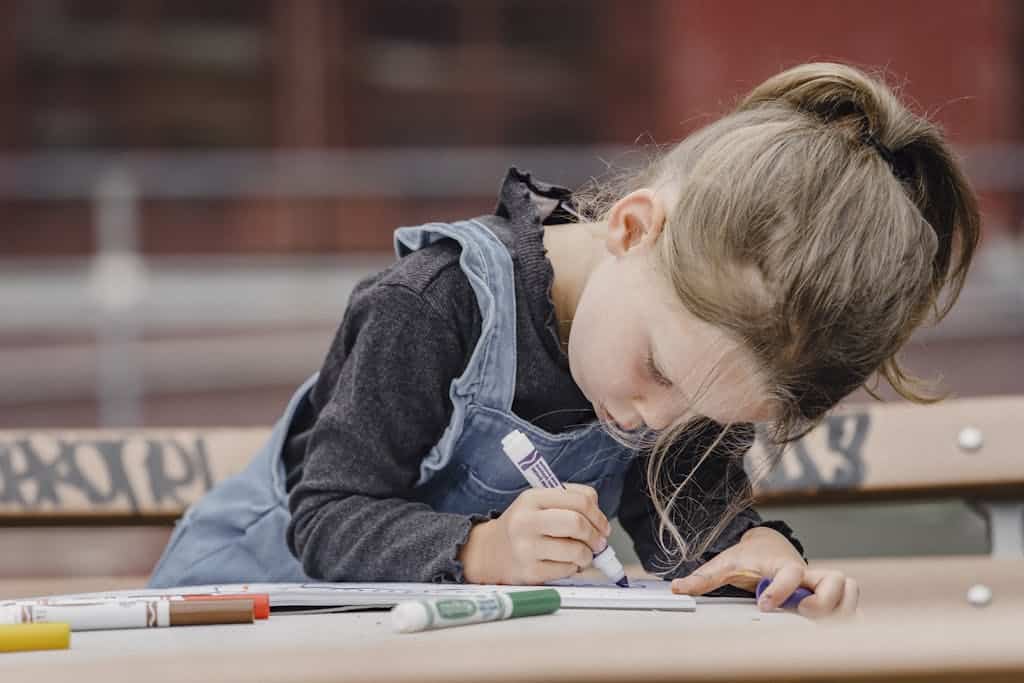
By following these guidelines, elementary students can effectively use a summer reading log at home to track their progress, stay motivated, and make reading an enjoyable and enriching experience during the summer break.
Your Kids Need This Summer Reading Log
Get your kids to keep track of their reading adventures with our user-friendly and fun-filled log.
Capture the titles of the books they read, the number of pages devoured, and the time spent immersed in each story. Plus, encourage reflection by jotting down their favourite parts of each reading session or any new words they encountered as well as the date of their literary escapades.
Get ready to make reading a memorable and rewarding experience for your young bookworms this summer!
Alternative Summer Reading Logs for Kids
Discover fun and creative ways to track reading progress with our alternative summer reading logs for kids! These unique logs offer exciting challenges and adventures to make reading even more enjoyable.
Read in 100 Places
Kids can set off on an unforgettable reading adventure with our Read in 100 Places summer reading challenge checklist. Designed to ignite the imagination of elementary students, this checklist inspires them to discover new reading spots and revel in the joy of reading in unexpected locations.
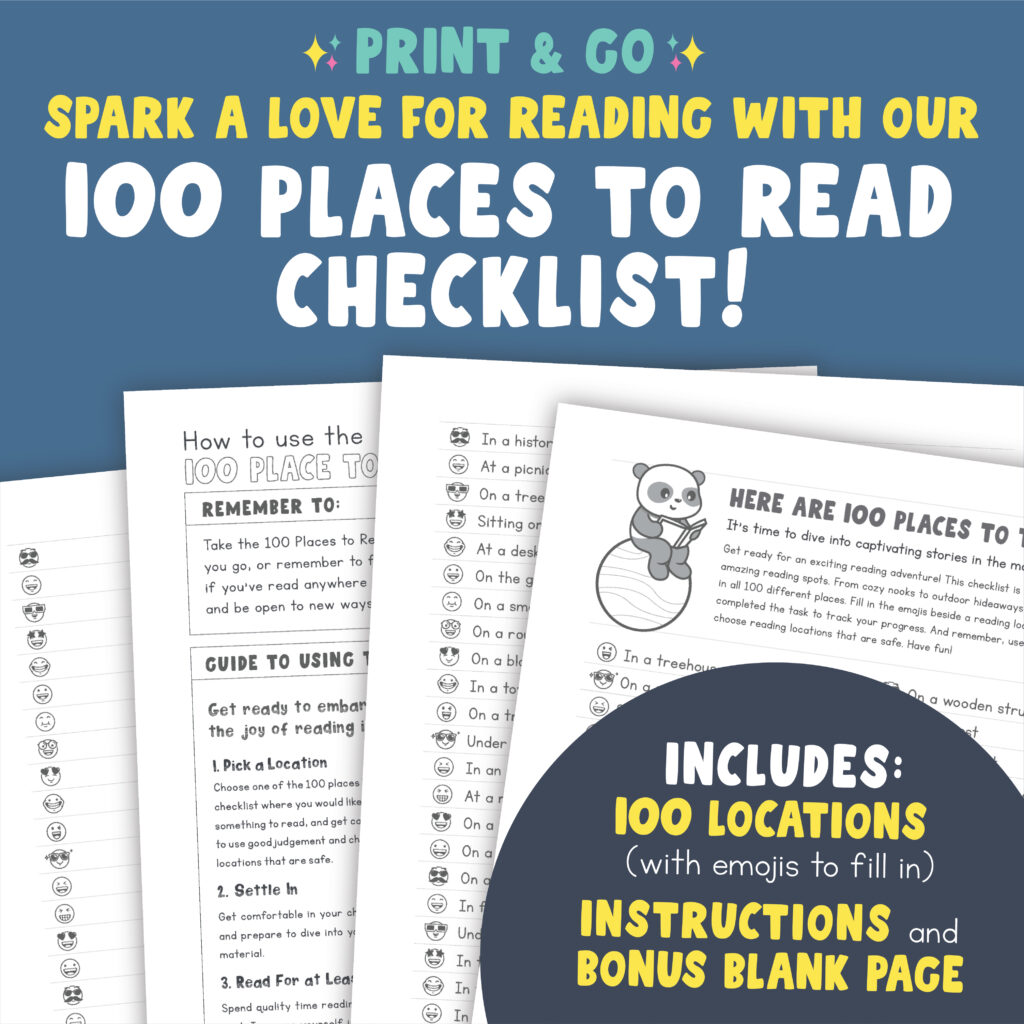
From cozy nooks under trees to thrilling adventures reading by flashlight in blanket forts, the list of 100 intriguing reading locations will captivate their senses.
As students explore each reading spot, they can mark their progress on the checklist and fill in the adorable emoji faces provided, creating a visual reading log that keeps them motivated and eager to explore new reading spots.
Reading BINGO
Elevate their reading journey with our Reading BINGO Cards. These cards redefine reading as a thrilling adventure, offering 25 captivating reading tasks in each of the 6 BINGO cards.
With a diverse range of literary explorations packed into each card, no two are alike, ensuring endless reading enjoyment!
Perfect for tracking at-home reading, these cards make it effortless for families to embrace a variety of reading experiences, from exploring different book genres to decoding song lyrics and game instructions.
With our alternative summer reading logs, your kids will have fun exploring new books and tracking their progress along the way.
Why It’s Important to Read Over the Summer
Research shows that students who don’t engage in reading activities over the summer can lose months’ worth of academic progress, making it challenging for them to catch up once school resumes. This is where the importance of summer reading comes into play. By encouraging children to read during their time away from formal learning, we can help prevent the summer brain drain and keep their minds sharp.

Reading over the summer offers a multitude of benefits beyond simply maintaining academic skills. It opens doors to new worlds, sparks the imagination, and ignites a lifelong love for books. It opens children’s eyes to diverse perspectives, cultures, and experiences, broadening their understanding of the world. Reading also enhances vocabulary, improves language skills, and boosts critical thinking and comprehension abilities.
To combat the summer slide and make the most of the summer months, check out our blog post, Summer Brain Drain: 9 Ways to Help Elementary Children Avoid the Summer Slide. We’ve compiled a list of creative and effective strategies to keep your child engaged in reading and learning all summer long. From using summer reading logs to organizing a family book club, these ideas will not only prevent learning loss but also make reading a fun and enjoyable activity for the whole family.
Resources to Make Summer Reading More Fun
Enhance their summer reading with our engaging resources designed to help you make learning more enjoyable for elementary students. When kids have fun while learning, they’re more likely to remember what they’ve learned.

Explore our blog post on 31 Summer Reading Activities for creative ideas ranging from scavenger hunts to word games, perfect for elementary-aged children.
Looking to make your picture book reading sessions even more exciting? Be sure to check out our blog on Classroom Vocabulary Activities: 11 Exciting Post-Picture Book Reading Ideas. Discover unique ways to make reading a fun learning experience with these awesome activities.
Plus, check out our blog about The Best Story Dice and 11 Fun Ways To Use Them. With our Roll a Story Dice, students can construct 8 unique dice, each with captivating images representing different story elements. These images ignite imagination and inspire creative storytelling, making reading an interactive and enjoyable experience.
Finally, explore our blog, The Ultimate 13 Vocabulary Development Activities for Kids, where we share Montessori-aligned activities designed to enhance vocabulary skills in elementary students. By incorporating these strategies into your child’s summer reading adventures, you can foster a love for language and boost their vocabulary in a playful and engaging way.
The Wrap-Up: Summer Reading Logs for Elementary Students
Summer reading logs offer a range of benefits for elementary students, from tracking progress and setting goals to expanding vocabulary and fostering independent reading. By implementing summer reading logs, parents and educators can support students in developing crucial reading skills while instilling a lifelong love for books.
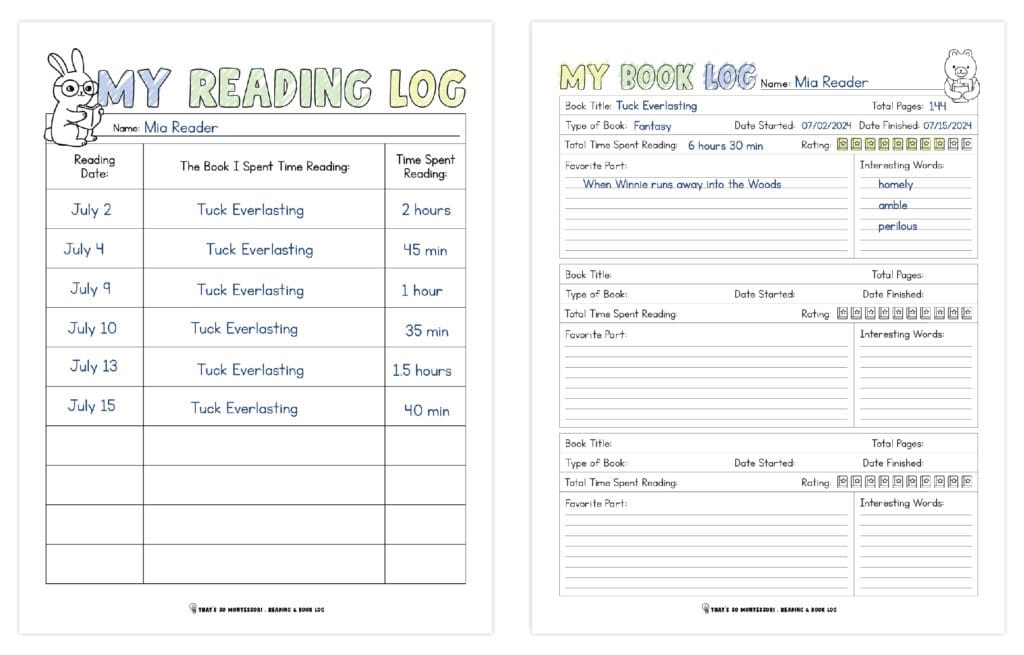
This summer, embrace the power of reading and provide your young readers with the tools they need to embark on a summer of adventure, imagination, and growth.
Remember, the joy of reading knows no bounds, and summer reading logs are the perfect companion to make the most of this season of exploration and learning!
📌 Pin this great list now for easy reference later!
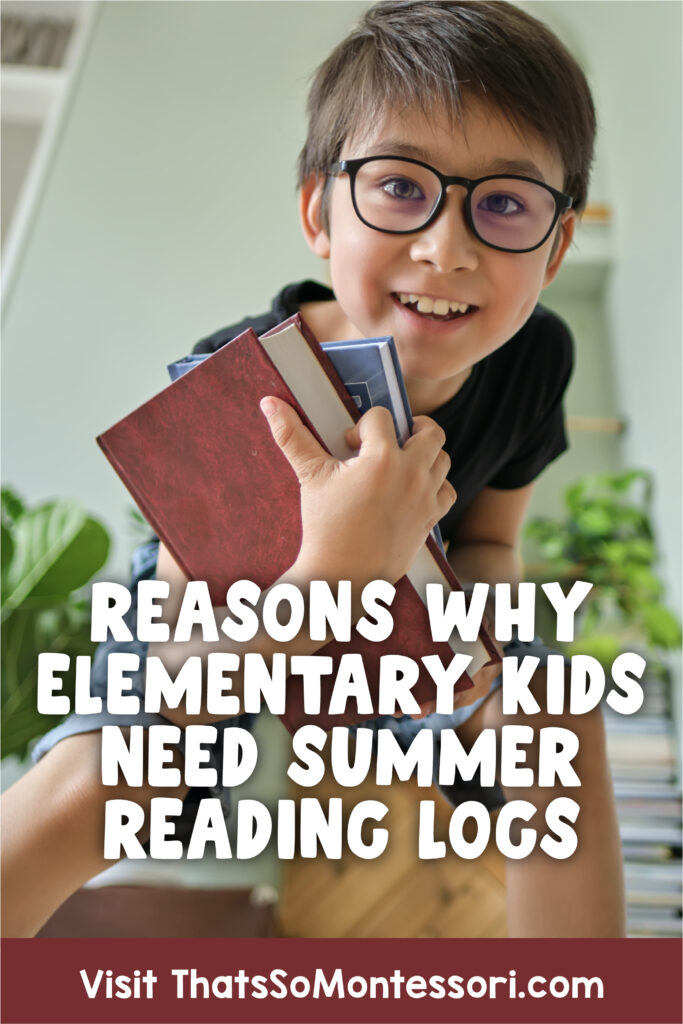
Stay informed and inspired by subscribing to our newsletter for more insightful articles like this one.
Turn learning into fun with the activities in these blogs:
11 Ways to Use Our Roll A Story Dice Game
13 Engaging Vocabulary Development Activities for Elementary Kids
Rebus Puzzles for Kids: A Comprehensive Riddle-Solving Guide
Scavenger Hunt Meets ABCs – A Printable Kids Will Love
31 Fun Summer Reading Activities Elementary Students Will Love
The Best Neighborhood Walk Scavenger Hunt
This Simple Fitness Scavenger Hunt Can Create Young Leaders
8 Easy Rebus Puzzles with Answers
Rebus Puzzles for Kids: A Comprehensive Riddle-Solving Guide


